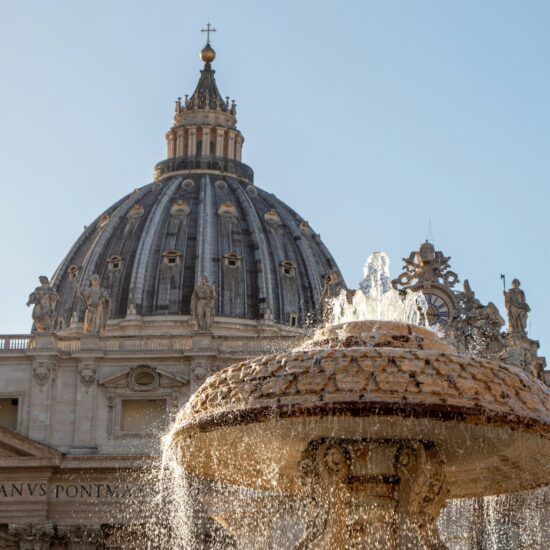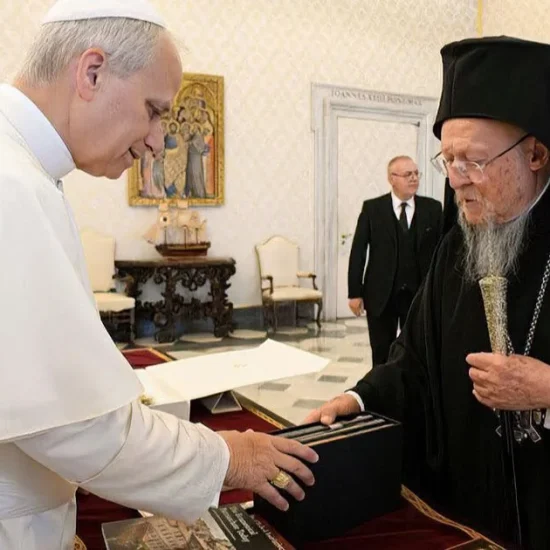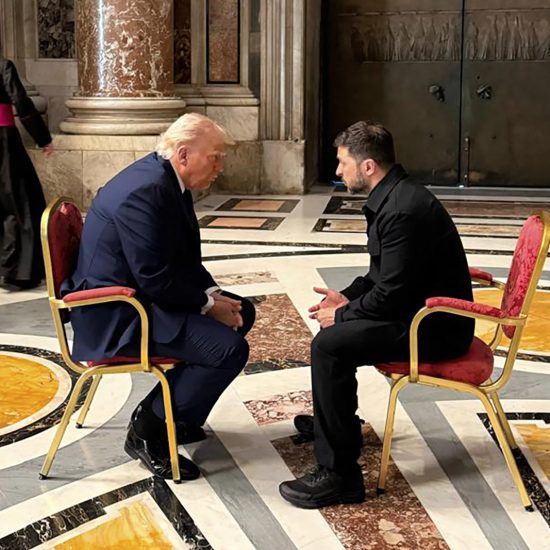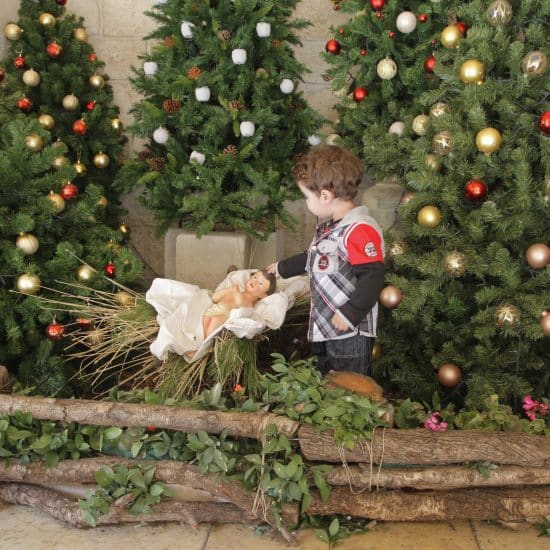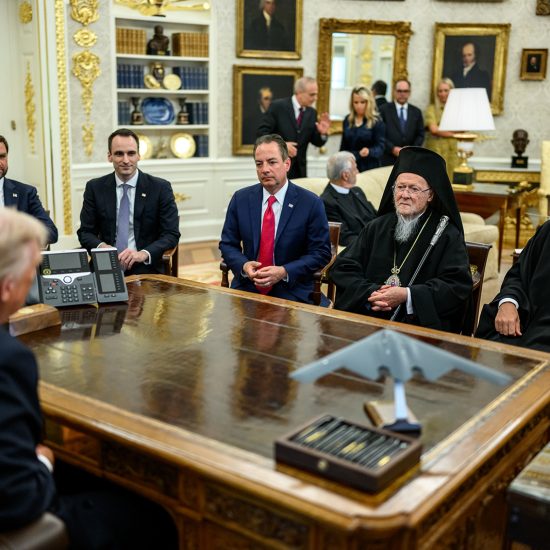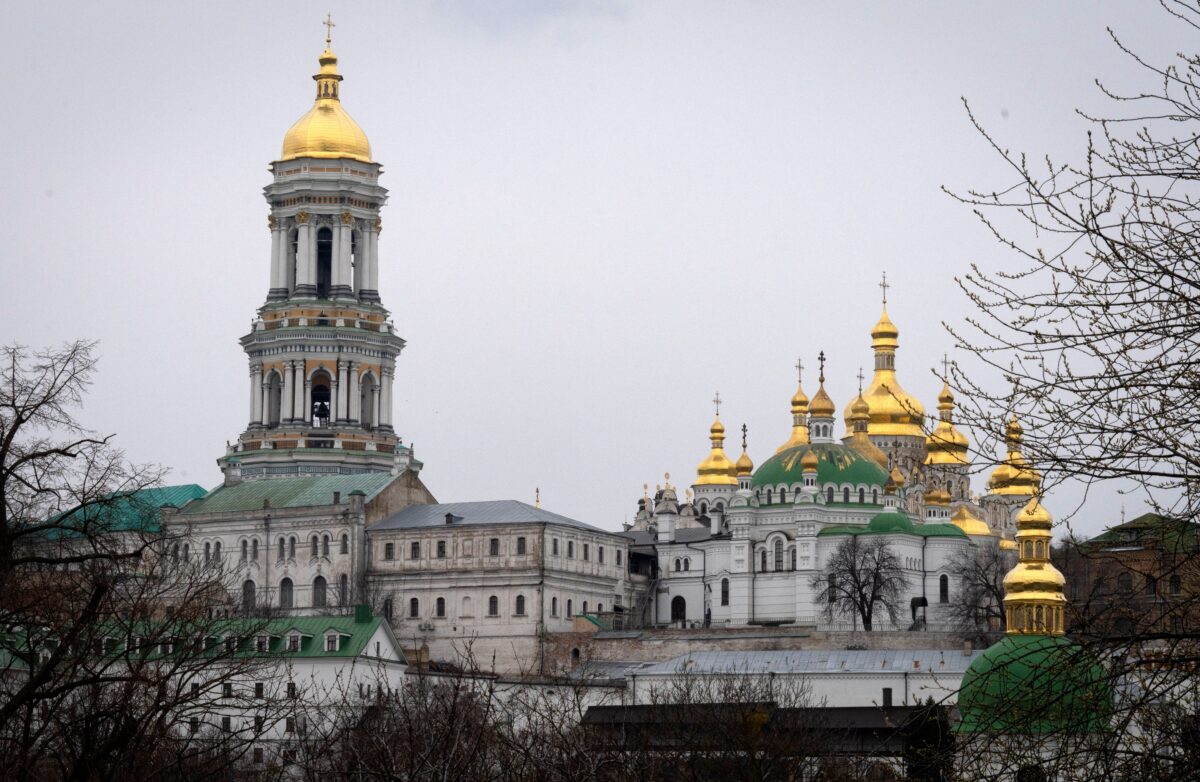
(RNS) — The Ukrainian Parliament passed a preliminary vote on Thursday (Oct. 19) for a bill that could ban the Ukrainian Orthodox Church, which has close ties to the Russian Orthodox Church, from operating within Ukraine’s borders.
Draft law 8371 would give Ukrainian authorities power to examine the connection of religious groups in Ukraine to the Russian Federation and to ban those whose leadership is outside of Ukraine. The draft law, under Ukraine’s parliamentary rules, still needs to undergo a second vote, where it may be amended, before moving to President Volodymyr Zelenskyy for his approval before it becomes law.
Since the outbreak of full-scale war between Russia and Ukraine, Russian Orthodox priests in Ukraine and around the world have faced accusations of spying and otherwise working to advance Russia’s political interests. Moscow’s Patriarch Kirill, a close ally of the Putin regime, has provided religious justification for the conflict in sermons and public appearances.
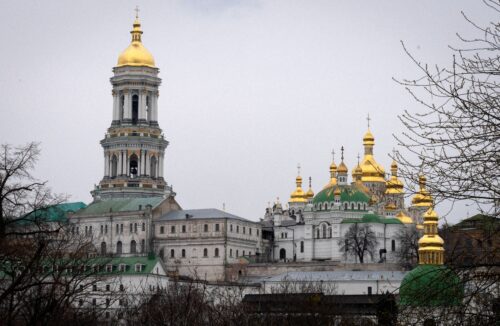
The Monastery of the Caves, also known as Kyiv-Pechersk Lavra, one of the holiest sites of Eastern Orthodox Christians, in Kyiv, Ukraine, March 23, 2023. Tensions are on the rise at a prominent Orthodox monastery in Kyiv where the monks are facing eviction later this month. The Ukrainian government accuses the monks of links to Moscow, even though they claim to have severed ties with the Russian Orthodox Church following Russia’s full-scale of invasion of Ukraine. (AP Photo/Efrem Lukatsky)
“The Russian Orthodox Church’s connection to the Russian Special Services has a very long history,” Oleksandr Kyrylenko, a scholar of religion and Orthodox Christianity in Ukraine, told Religion News Service.
Last month, Bulgaria expelled three of the highest-ranking Russian Orthodox priests in the country. At the same time, the FBI warned Orthodox communities in the U.S. that Russian intelligence services may be using their churches to recruit assets.
Shortly after the vote on the bill, Ukraine’s state security service, the SBU, accused the Russian Orthodox Church of training mercenaries.
“The Security Service has exposed the leadership of the Russian Orthodox Church for creating its own private military companies on the territory of the Russian Federation,” the SBU said in a statement released on Telegram. “One such private military company called St. Andrew’s Cross is documented to operate out of the Kronstadt Naval Cathedral in St. Petersburg.”
Since the 10th century, Russian and Ukrainian Orthodox Christians had been part of one church. The Moscow Patriarchate itself began as the metropolitan of Kyiv and all Rus, the people who formed the first Russian nation. The relationship between the Russian church and Ukrainian Orthodox Christians began to sour almost a decade ago after Russia’s support for separatist insurgents in Ukraine’s eastern Donbas region and Russia’s occupation of Crimea in 2014.
In 2019, the Ecumenical Patriarch of Constantinople, considered “first among equals” in the Orthodox Christian world and a customary mediator among its many patriarchates, granted a “Tomos of Autocephaly” to Orthodox Christians in Ukraine, allowing them to come under the authority of the patriarch of Constantinople, rather than Kirill.
The move caused the Russian church to break communion with Constantinople and patriarchates that recognized the ruling. In Ukraine, the Orthodox community also divided, with those who embraced autocephaly and styled themselves as the Orthodox Church of Ukraine and those who kept the name Ukrainian Orthodox Church.
The latter, while not accepting Constantinople’s declaration, says it is independent of the Russian Orthodox Church and has publicly criticized Russia, and Patriarch Kiril’s support of the invasion.
The OCU has formally adopted Ukrainian as its liturgical language, ditching Old Church Slavonic, still used by the Russian Church. This summer, the OCU also dropped the Julian calendar and adopted a newly revised one, which, among other changes, moved the date of Christmas from Jan. 7, as it is celebrated in Russia, to Dec. 25.
Thousands of parishes in Ukraine have re-registered themselves as part of the OCU, particularly since the 2022 invasion by Russia.
Since the outbreak of the war, 68 UOC priests have been accused of collaboration, treason, and other offenses, according to the SBU, while this year alone, nearly 20 of the church’s leaders have been stripped of their Ukrainian citizenship.
In December 2022, Ukraine’s constitutional court approved a law that officially changed the church’s registered name to highlight its affiliation with Russia. Today, it is legally known as The Ukrainian Orthodox Church-Moscow Patriarchate. At the same time, Zelenskyy signed a bill sanctioning several leading members of the UOC and instructing Ukraine’s Parliament and security services to further investigate their ties to Russia.
In a statement released Thursday, the Russian-linked church argued that the draft law violates its religious freedom and constitutional rights. While acknowledging that the legislation does not name the Ukrainian Orthodox Church, the church said that it “prohibits the activities of religious organizations associated with the aggressor state” and “is essentially aimed at banning the Ukrainian Orthodox Church and violates the rights to freedom of religion of Ukrainian citizens who belong to the Ukrainian Orthodox Church.”
But Metropolitan Yevstratiy of Bila Tserkva, a spokesman for the independent Ukrainian church, said there is no evidence to show that the UOC has separated from Moscow. If the OUC is really operating free of Russian influence, he added, the draft law “will have nothing to do with their situation because this draft law imposes restrictions only on those subordinate to Russian religious centers.”
Moscow Patriarch Kirill immediately came to the defense of the OUC, noting his “sadness” that “in many countries of the world the children of our Church become objects of oppression and even bullying simply because they are bearers of centuries-old Russian culture, which is inseparable from the heritage of Russian statehood,” according to a statement released by the Moscow Patriarchate.
“The so-called abolition of Russian culture, shameless slander, and unpunished destruction of the Ukrainian Orthodox Church are ways to oppose and quarrel those who are related to the single spiritual and cultural heritage created by the peoples of historical Rus.”
The church that retained its ties to Moscow still claims a higher number of total parishes than the OCU, but the number of parishes does not necessarily represent the total number of faithful, as the count doesn’t differentiate between large urban cathedrals and tiny village chapels. It also claims that many of the re-registrations were made by overzealous police officers without the knowledge of local congregations.
A study conducted last year found that a majority of Ukrainians identified with the OCU and only 4% with the Russian-linked church, though a larger number identified simply as Orthodox Christians without specifying either church.

